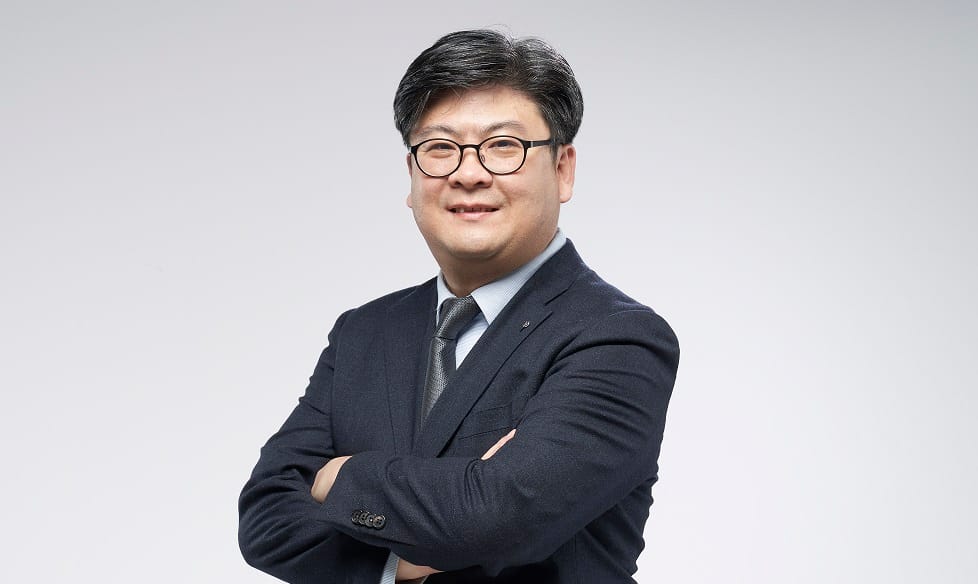Quantum’s Quiet Revolution—and Who’s Already Watching

Interview with Dr. Jihoon Jeong
- Co-founder and General Partner at Asia2G Capital
- Adjunct Professor at DGIST (Daegu Gyeongbuk Institute of Science and Technology)

Q. Why are quantum concepts suddenly everywhere in sci-fi? What does it tell us?
It’s more than a sci-fi trend—it’s a signal that imagination and real science are starting to overlap. We’ve seen this before: AI was everywhere in movies long before it changed real industries. But once deep learning took off in 2012, fiction started turning into fact.
Now, quantum computing is following a similar path. Concepts like Schrödinger’s cat and multiverse theory have fascinated the public for years—but only recently have we gained the tools to test quantum ideas in real labs.
So when quantum themes flood books, films, and media, it often means one thing:
science fiction is catching up with science itself—and real breakthroughs may not be far behind.
Q. How is a quantum computer different from a classical one?
Unlike classical computers that work step by step, quantum computers explore many possibilities at once.
A helpful analogy is the Avengers scene where Doctor Strange scans millions of futures to find the best one—that’s how quantum systems operate, using superposition and entanglement to process complex scenarios in parallel.
This makes them especially powerful for problems that overwhelm traditional systems, like:
- Breaking encryption
- Optimizing large-scale logistics
- Simulating molecules for drug or material discovery
Think of quantum computers as a new kind of brain—not built for general use, but for solving problems that are too complex for classical computing to handle alone.
Q. What technical hurdles need to be addressed before quantum computers can be widely adopted?
The biggest challenge is hardware. Qubits, the core units of quantum computers, are powerful but extremely fragile.
They require ultra-cold, highly stable environments—colder than outer space—to function without errors, which makes today’s systems hard to scale.
To overcome this, researchers are developing error correction methods and exploring new architectures like ion traps, photonic systems, and topological qubits—each promising, but still in early stages.

Q. Will quantum computers eventually become as easy to use as smartphones?
It’s a strong possibility. Like early classical machines that evolved from room-sized systems to everyday devices, quantum computers are expected to follow a similar path as the technology matures.
A key requirement is coherence—qubits must stay in sync over time.
Think of it like an orchestra: each qubit is an instrument, and even small disruptions—like heat or electromagnetic noise—can throw off the entire system.
As stabilization and scalability improve, quantum computers could move from research labs to real-world applications—just as classical computers once did.

Q. Which industries are likely to feel the impact of quantum computing first?
Quantum computing will first impact industries that combine high complexity with high financial upside.
Early use cases include:
- Pharmaceuticals, through molecular simulations for drug discovery
- Advanced materials and battery design, requiring atomic-level modeling
- Finance, especially for optimizing portfolios like ETFs and derivatives
Take ETFs, for example: finding the ideal mix of assets is a complex optimization problem.
While AI helps, classical systems hit limits as combinations scale.
Quantum computers can evaluate many scenarios in parallel—offering a clear edge.
In short, industries where complexity meets commercial value will adopt quantum first, because the potential returns justify the investment.
Q. Quantum computing is still in its early stages—are there any practical applications available today?
Quantum computing is still early, with most machines offering only a few usable qubits—many of which are needed for error correction due to system instability.
Still, we’re not at zero value. Even with today’s limitations, quantum systems are beginning to make an impact in areas where classical computing struggles:
- Drug discovery, via molecular simulations
- Materials science, modeling atomic-level behavior
- Finance, optimizing ETF portfolios
- Logistics, solving complex routing problems
These are high-complexity challenges that classical systems can’t scale well.
Quantum computers—though limited—are already showing meaningful advantages in narrow, high-impact use cases.
Q. Why is Quantum–AI Hybrid Computing gaining attention, and how does it actually work?
Quantum–AI hybrid computing is gaining traction because it offers a practical way to unlock early value from quantum systems—without waiting for perfect hardware.
Here’s how it works:
- AI or classical systems handle large-scale, repetitive tasks
- Quantum systems focus on complex parts like simulation, optimization, or quantum-specific modeling
- The results are integrated via cloud or machine learning platforms
It’s not about quantum replacing classical computing.
Think of it as two experts collaborating—each solving what they’re best at.
For now, hybrid models are the most realistic and scalable approach—technically and commercially—to move quantum computing into real-world use.

Q. If quantum computers become commercially viable, how much will internet infrastructure need to change?
If quantum computers reach commercial scale, today’s internet security will need a full rebuild—not just an upgrade.
Most current encryption methods could be broken, requiring a complete overhaul of systems across banking, e-commerce, communications, and identity verification.
This isn’t just a technical shift—it’s a structural transformation with wide industry impact.
That said, it won’t happen overnight. Experts anticipate a 10+ year transition as new quantum-safe standards are developed.
For investors and infrastructure leaders, the real question is:
how early are you preparing for a change that’s inevitable?
Q. How advanced is quantum computing in Korea, and where does the country have a competitive edge?
Korea isn’t leading in building full-scale quantum hardware—that space is still dominated by global giants like IBM, Google, and IonQ. Even IonQ, co-founded by a Korean-born physicist, centers its R&D in the U.S.
But Korea is gaining ground in quantum-safe infrastructure, especially in cybersecurity.
A key example is SK Telecom, which acquired ID Quantique, the global leader in quantum key distribution (QKD), and later formed a strategic partnership with IonQ.
As quantum machines evolve and break today’s encryption methods, quantum-proof security will become both essential and commercially viable—well before universal quantum computing arrives.
It’s a pattern we’ve seen before:
Korea didn’t create core AI engines, but it built standout companies by focusing on applied solutions.
In quantum, software, algorithms, and vertical-specific use cases may be where Korea leads.

Q. How are big tech companies approaching quantum—building it themselves or acquiring it?
Both.
IBM and Google are taking the full-stack route—developing their own hardware, software, and cloud integration. They’ve built vertically integrated platforms from the start.
Microsoft and Amazon, on the other hand, began by partnering with quantum startups and offering quantum access through their cloud platforms.
Now, as the commercial value of quantum becomes more tangible, both are shifting gears—investing in internal R&D and strategic acquisitions.
For example:
- Microsoft has launched in-house efforts like MyOrionow
- Amazon is reportedly working with or acquiring firms like OxenT
The trend is clear: big tech is moving from collaboration to control—positioning themselves for leadership in a market that’s quickly shifting from theory to reality.
Q. When investing in early-stage deep tech like quantum computing, what matters most to you?
At the earliest stages, it always comes down to people.
When I invested in deep learning companies like Lunit and Cloudworks back in 2014, what mattered most wasn’t just the technology—it was the founders’ clarity, conviction, and willingness to endure a 7-year journey to IPO.
I see the same signals forming around quantum computing today. The technical groundwork is there, big tech is entering, and use cases are starting to take shape.
I haven’t made a direct investment yet, but I’m tracking the space closely. In my view, angel investors should think in 10-year horizons, while VCs operate on a 3–5 year view.
This feels like the beginning of the quantum era—and those who back the right people early are the ones who will shape it.

Q. How should we prepare for a future shaped by quantum computing?
When deep learning first appeared, it felt academic and niche. But within a few years, it was everywhere—search engines, diagnostics, finance. Not knowing AI became a professional blind spot.
Quantum computing is in that same early phase. It still feels abstract, but it's likely to become foundational. Now’s not the time to master it—but to start noticing.
Reading a term or tracking a headline each day can help build the context you’ll need later.
The future doesn’t arrive all at once. It builds quietly—until one day, it’s everywhere.
Quantum feels distant now. So did AI—until it didn’t.
Start now. Stay close. That’s how you prepare.
